Terry Eagleton at Commonweal:
 By this point, the enlightened reader may well be wondering whether anything of value can be salvaged from this full-blooded reactionary. The answer is surely affirmative. For one thing, Eliot’s elitism, demeaning estimate of humanity, and indiscriminate distaste for modern civilization are the stock in trade of the so-called Kulturkritik tradition that he inherited. Many an eminent twentieth-century intellectual held views of this kind, and so did a sizeable proportion of the Western population of the time. This doesn’t excuse their attitudes, but it helps explain them. For another thing, such attitudes put Eliot at loggerheads with the liberal-capitalist ideology of his age. He is, in short, a radical of the right, like a large number of his fellow modernists. He believes in the importance of communal bonds, as much liberal ideology does not; he also rejects capitalism’s greed, selfish individualism, and pursuit of material self-interest. “The organization of society on the principle of private profit,” he writes in The Idea of a Christian Society, “as well as public destruction, is leading both to the deformation of humanity by unregulated industrialism, and so to the exhaustion of natural resources…a good deal of our material progress is a progress for which succeeding generations may have to pay dearly.”
By this point, the enlightened reader may well be wondering whether anything of value can be salvaged from this full-blooded reactionary. The answer is surely affirmative. For one thing, Eliot’s elitism, demeaning estimate of humanity, and indiscriminate distaste for modern civilization are the stock in trade of the so-called Kulturkritik tradition that he inherited. Many an eminent twentieth-century intellectual held views of this kind, and so did a sizeable proportion of the Western population of the time. This doesn’t excuse their attitudes, but it helps explain them. For another thing, such attitudes put Eliot at loggerheads with the liberal-capitalist ideology of his age. He is, in short, a radical of the right, like a large number of his fellow modernists. He believes in the importance of communal bonds, as much liberal ideology does not; he also rejects capitalism’s greed, selfish individualism, and pursuit of material self-interest. “The organization of society on the principle of private profit,” he writes in The Idea of a Christian Society, “as well as public destruction, is leading both to the deformation of humanity by unregulated industrialism, and so to the exhaustion of natural resources…a good deal of our material progress is a progress for which succeeding generations may have to pay dearly.”
more here.



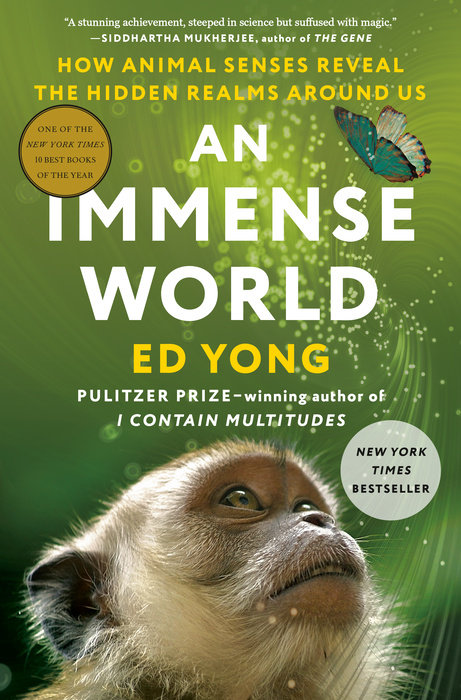 An Immense World; How Animal Senses Reveal the Hidden Realms Around Us, Ed Yong, Random House/Bodley Head, June 2022
An Immense World; How Animal Senses Reveal the Hidden Realms Around Us, Ed Yong, Random House/Bodley Head, June 2022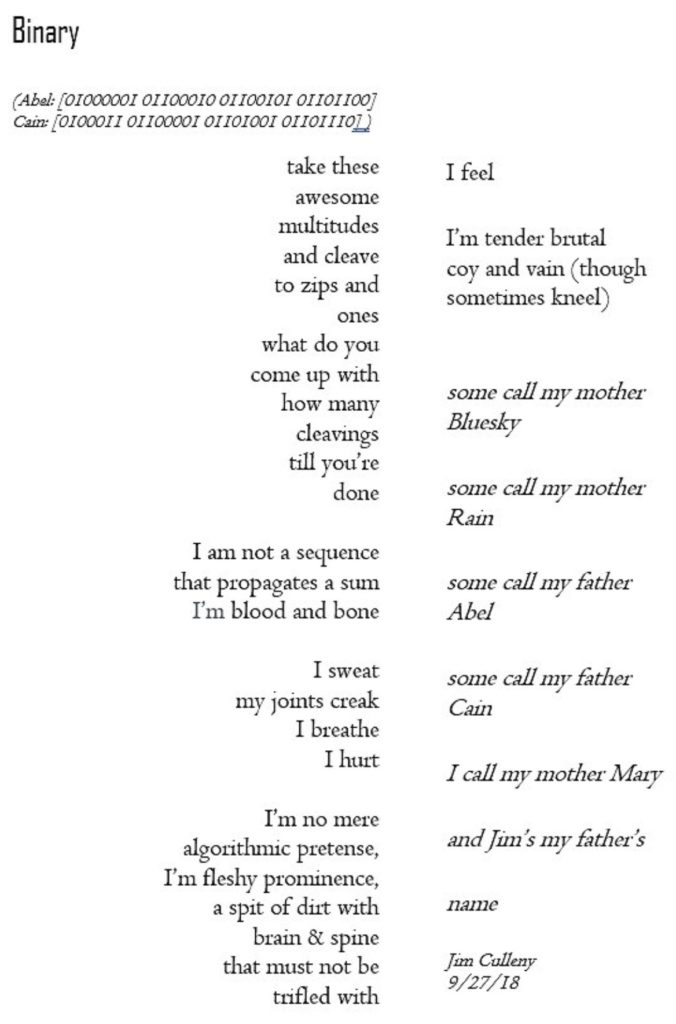
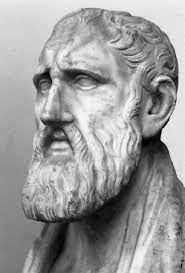 One of the more remarkable developments in popular philosophy over the past 20 years is the rebirth of stoicism. Stoicism was an ancient Greek and Roman philosophy founded around 300 BCE by the merchant Zeno of Citium, in what is now Cyprus. Although, contemporary professional philosophers occasionally discuss Stoicism as a form of virtue ethics, most consider it to be a minor philosophical movement in the history of philosophy with limited influence. Yet it has captured the attention of the non-professional philosophical world with many websites and online communities devoted to its practice.
One of the more remarkable developments in popular philosophy over the past 20 years is the rebirth of stoicism. Stoicism was an ancient Greek and Roman philosophy founded around 300 BCE by the merchant Zeno of Citium, in what is now Cyprus. Although, contemporary professional philosophers occasionally discuss Stoicism as a form of virtue ethics, most consider it to be a minor philosophical movement in the history of philosophy with limited influence. Yet it has captured the attention of the non-professional philosophical world with many websites and online communities devoted to its practice.  Sughra Raza. Be Unvaan. June 11, 2022, Cambridge, MA.
Sughra Raza. Be Unvaan. June 11, 2022, Cambridge, MA.

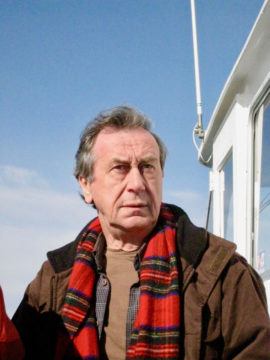 Thomas O’Dwyer, my husband, died on Wednesday. He wouldn’t approve of this beginning. In his articles he always came up with something original or intriguing to draw the reader in.
Thomas O’Dwyer, my husband, died on Wednesday. He wouldn’t approve of this beginning. In his articles he always came up with something original or intriguing to draw the reader in.

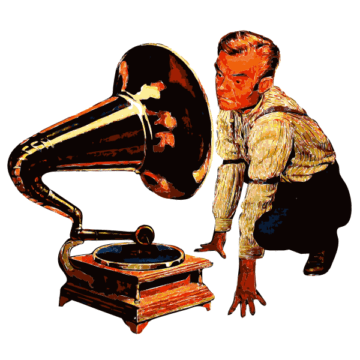
 In the 1990’s Andrei Shleifer was only one among many in the proselytizing army of reformers who went out to the transition economies, mainly in Central and Eastern Europe but also in developing countries, to make them ready for capitalism. They were in a hurry to implement reforms of liberalization and privatization according to some general, often one-size-fits-all, formula. The purse strings of emergency financial help by international organizations like the IMF and the World Bank and US agencies like USAID were also controlled by stern macro-economic ideologues of ‘structural adjustment’. The reformers were in possession of the canonical gospels which it was their sacred duty to spread among the heathens as quickly as possible, given the golden opportunity after the fall of the godless communists and socialists.
In the 1990’s Andrei Shleifer was only one among many in the proselytizing army of reformers who went out to the transition economies, mainly in Central and Eastern Europe but also in developing countries, to make them ready for capitalism. They were in a hurry to implement reforms of liberalization and privatization according to some general, often one-size-fits-all, formula. The purse strings of emergency financial help by international organizations like the IMF and the World Bank and US agencies like USAID were also controlled by stern macro-economic ideologues of ‘structural adjustment’. The reformers were in possession of the canonical gospels which it was their sacred duty to spread among the heathens as quickly as possible, given the golden opportunity after the fall of the godless communists and socialists. When do writers find the time to do any actual writing? It sometimes seems as though they are always speaking — delivering lectures, pontificating in bookshops, opining on talk shows. If they are lucky enough to win awards, they clear their throats and make grateful remarks; when the books they have somehow secreted between their speaking engagements are at last released, they discuss their “inspirations” and their “process” on podcasts or radio shows. More and more, the life of a professional author involves not writing but talking.
When do writers find the time to do any actual writing? It sometimes seems as though they are always speaking — delivering lectures, pontificating in bookshops, opining on talk shows. If they are lucky enough to win awards, they clear their throats and make grateful remarks; when the books they have somehow secreted between their speaking engagements are at last released, they discuss their “inspirations” and their “process” on podcasts or radio shows. More and more, the life of a professional author involves not writing but talking. In recent years, there has been an intense public debate about whether and, if so, to what extent investments in nuclear energy should be part of strategies to mitigate climate change. Here, we address this question from an ethical perspective, evaluating different strategies of energy system development in terms of three ethical criteria, which will differentially appeal to proponents of different normative ethical frameworks. Starting from a standard analysis of climate change as arising from an intergenerational collective action problem, we evaluate whether contributions from nuclear energy will, on expectation, increase the likelihood of successfully phasing out fossil fuels in time to avert dangerous global warming. For many socio-economic and geographic contexts, our review of the energy system modeling literature suggests the answer to this question is “yes.” We conclude that, from the point of view of climate change mitigation, investments in nuclear energy as part of a broader energy portfolio will be ethically required to minimize the risks of decarbonization failure, and thus the tail risks of catastrophic global warming. Finally, using a sensitivity analysis, we consider which other aspects of nuclear energy deployment, apart from climate change, have the potential to overturn the ultimate ethical verdict on investments in nuclear energy. Out of several potential considerations (e.g., nuclear waste, accidents, safety), we suggest that its potential interplay — whether beneficial or adverse — with the proliferation of nuclear weapons is the most plausible candidate.
In recent years, there has been an intense public debate about whether and, if so, to what extent investments in nuclear energy should be part of strategies to mitigate climate change. Here, we address this question from an ethical perspective, evaluating different strategies of energy system development in terms of three ethical criteria, which will differentially appeal to proponents of different normative ethical frameworks. Starting from a standard analysis of climate change as arising from an intergenerational collective action problem, we evaluate whether contributions from nuclear energy will, on expectation, increase the likelihood of successfully phasing out fossil fuels in time to avert dangerous global warming. For many socio-economic and geographic contexts, our review of the energy system modeling literature suggests the answer to this question is “yes.” We conclude that, from the point of view of climate change mitigation, investments in nuclear energy as part of a broader energy portfolio will be ethically required to minimize the risks of decarbonization failure, and thus the tail risks of catastrophic global warming. Finally, using a sensitivity analysis, we consider which other aspects of nuclear energy deployment, apart from climate change, have the potential to overturn the ultimate ethical verdict on investments in nuclear energy. Out of several potential considerations (e.g., nuclear waste, accidents, safety), we suggest that its potential interplay — whether beneficial or adverse — with the proliferation of nuclear weapons is the most plausible candidate. When the tomato started to circulate throughout Italy, Giulia [Marinelli, a guide at the Museo del Pompodoro, the world’s only museum dedicated to the tomato] says, it was so foreign that Italians weren’t even sure which part of the plant was meant to be eaten. Some gourmands pronounced it inedible after munching on the leaves. And, Giulia adds, “It was considered poisonous by many.” (The leaves, in large quantities, are.)
When the tomato started to circulate throughout Italy, Giulia [Marinelli, a guide at the Museo del Pompodoro, the world’s only museum dedicated to the tomato] says, it was so foreign that Italians weren’t even sure which part of the plant was meant to be eaten. Some gourmands pronounced it inedible after munching on the leaves. And, Giulia adds, “It was considered poisonous by many.” (The leaves, in large quantities, are.)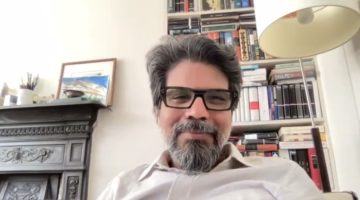 The big divide today on these matters is indeed between people who were around when the Berlin Wall fell and younger people who only saw the Twin Towers fall. After 9/11, there was a moment of unity in the United States — and a moment of international sympathy — which was quickly shattered by the actions of the Bush administration and its open-ended war on terror, which ended up essentially destroying large parts of the world. For people who were born in the 1990s, it’s been a nonstop experience of political trauma, beginning with 9/11, then the horrific insurgency in Iraq, then the failures of the Bush administration during Hurricane Katrina, then the corruption of the financial elites being revealed by the crash of 2008, and then the deception of the Obama years, which was revealed when Trump suddenly emerged ‘out of nowhere.’ It’s been very difficult, I imagine, for people in your generation to adopt a moralizing position vis-a-vis the world, or to think that after everything that has happened we can simply assume leadership of the free world.
The big divide today on these matters is indeed between people who were around when the Berlin Wall fell and younger people who only saw the Twin Towers fall. After 9/11, there was a moment of unity in the United States — and a moment of international sympathy — which was quickly shattered by the actions of the Bush administration and its open-ended war on terror, which ended up essentially destroying large parts of the world. For people who were born in the 1990s, it’s been a nonstop experience of political trauma, beginning with 9/11, then the horrific insurgency in Iraq, then the failures of the Bush administration during Hurricane Katrina, then the corruption of the financial elites being revealed by the crash of 2008, and then the deception of the Obama years, which was revealed when Trump suddenly emerged ‘out of nowhere.’ It’s been very difficult, I imagine, for people in your generation to adopt a moralizing position vis-a-vis the world, or to think that after everything that has happened we can simply assume leadership of the free world.